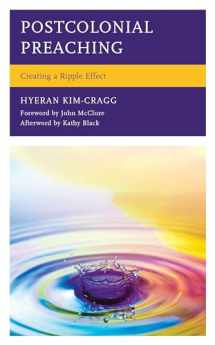
Postcolonial Preaching: Creating a Ripple Effect (Postcolonial and Decolonial Studies in Religion and Theology)
Book details
Summary
Description
In Postcolonial Preaching, HyeRan Kim-Cragg argues that preaching is the act of dropping the stone of the Gospel into a lake, making waves to move hearts and transform the world wounded by colonial violence. The ripple effect serves as a metaphor and acronym to guide to preaching that takes postcolonial concerns seriously: Rehearsal, Imagination, Place, Pattern, Language and Exegesis (RIPPLE). Kim-Cragg explains each “ripple” in this approach and exercise of creating and delivering sermons. The author delivers fresh insights while drawing on some traditional homiletical perspectives in the service of a homiletic that takes the reality of racism, migration, and environmental degradation seriously. Moreover, Kim-Cragg demonstrates the postcolonial sermon in action by including annotated homilies. This book contributes to the very first wave of the application of postcolonial scholarship in preaching. Given the continuing extent and influence of colonial worldviews and legacies, this approach should become a staple in preaching over the next generation.


We would LOVE it if you could help us and other readers by reviewing the book
Book review



